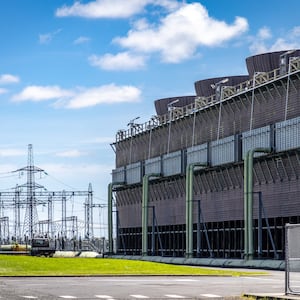Business
Smart Technology Offers Solutions to New Zealand’s Energy Issues

New Zealand’s energy system is currently grappling with significant challenges, prompting the need for innovative solutions and smarter management strategies. Recent findings indicate that implementing dynamic load control technology could alleviate energy demand, resulting in substantial cost savings and a reduction in strain on the national grid. Households in New Zealand could potentially save up to $300 million each year through improved hot water management and favorable energy deals.
Addressing Energy Demand and Management
The energy landscape in New Zealand highlights an urgent need for enhanced generation and management techniques. The ongoing reliance on traditional energy sources, coupled with increasing demand, creates a scenario where the balance between supply and consumption is precarious. Dynamic load control technology enables more effective energy usage by distributing demand more evenly across the day, thus mitigating peak load pressures.
This technology facilitates better management of electricity usage in homes, particularly during peak times. By optimizing when and how energy is consumed, households can not only reduce their bills but also contribute to a more resilient energy system. The implementation of smart hot water management systems is a vital part of this strategy. These systems can adjust water heating based on real-time energy prices and consumption patterns, further enhancing efficiency and savings.
The Impact on Households and the Grid
The potential collective savings of $300 million annually for New Zealand households is a compelling incentive for adopting these technologies. In practical terms, this means that New Zealanders could see a significant reduction in their energy costs while simultaneously supporting the country’s transition to a more sustainable energy future.
As New Zealand continues to navigate its energy challenges, the integration of smart technology will play a crucial role. The emphasis on dynamic load control not only addresses current issues but also lays the groundwork for a more adaptive and efficient energy system. By investing in these technologies, New Zealand can enhance its energy security and ensure a reliable supply for its citizens.
In conclusion, the call for smarter energy management in New Zealand has never been more pressing. With the right technologies in place, the country can not only tackle its immediate energy challenges but also pave the way for a sustainable and economically viable future.
-

 Sports2 months ago
Sports2 months agoNetball New Zealand Stands Down Dame Noeline Taurua for Series
-

 Entertainment2 months ago
Entertainment2 months agoTributes Pour In for Lachlan Rofe, Reality Star, Dead at 47
-

 Entertainment3 weeks ago
Entertainment3 weeks agoNew ‘Maverick’ Chaser Joins Beat the Chasers Season Finale
-

 Sports2 months ago
Sports2 months agoSilver Ferns Legend Laura Langman Criticizes Team’s Attitude
-

 Politics4 weeks ago
Politics4 weeks agoNetball NZ Calls for Respect Amid Dame Taurua’s Standoff
-

 Sports23 hours ago
Sports23 hours agoEli Katoa Rushed to Hospital After Sideline Incident During Match
-

 Entertainment2 months ago
Entertainment2 months agoKhloe Kardashian Embraces Innovative Stem Cell Therapy in Mexico
-

 World3 months ago
World3 months agoPolice Arrest Multiple Individuals During Funeral for Zain Taikato-Fox
-

 Sports3 months ago
Sports3 months agoGaël Monfils Set to Defend ASB Classic Title in January 2026
-

 Entertainment1 month ago
Entertainment1 month agoTyson Fury’s Daughter Venezuela Gets Engaged at Birthday Bash
-

 Sports1 month ago
Sports1 month agoHeather McMahan Steps Down as Ryder Cup Host After Controversy
-

 World2 weeks ago
World2 weeks agoSevere Winds Hit New Zealand, Over 100 Flights Canceled



















